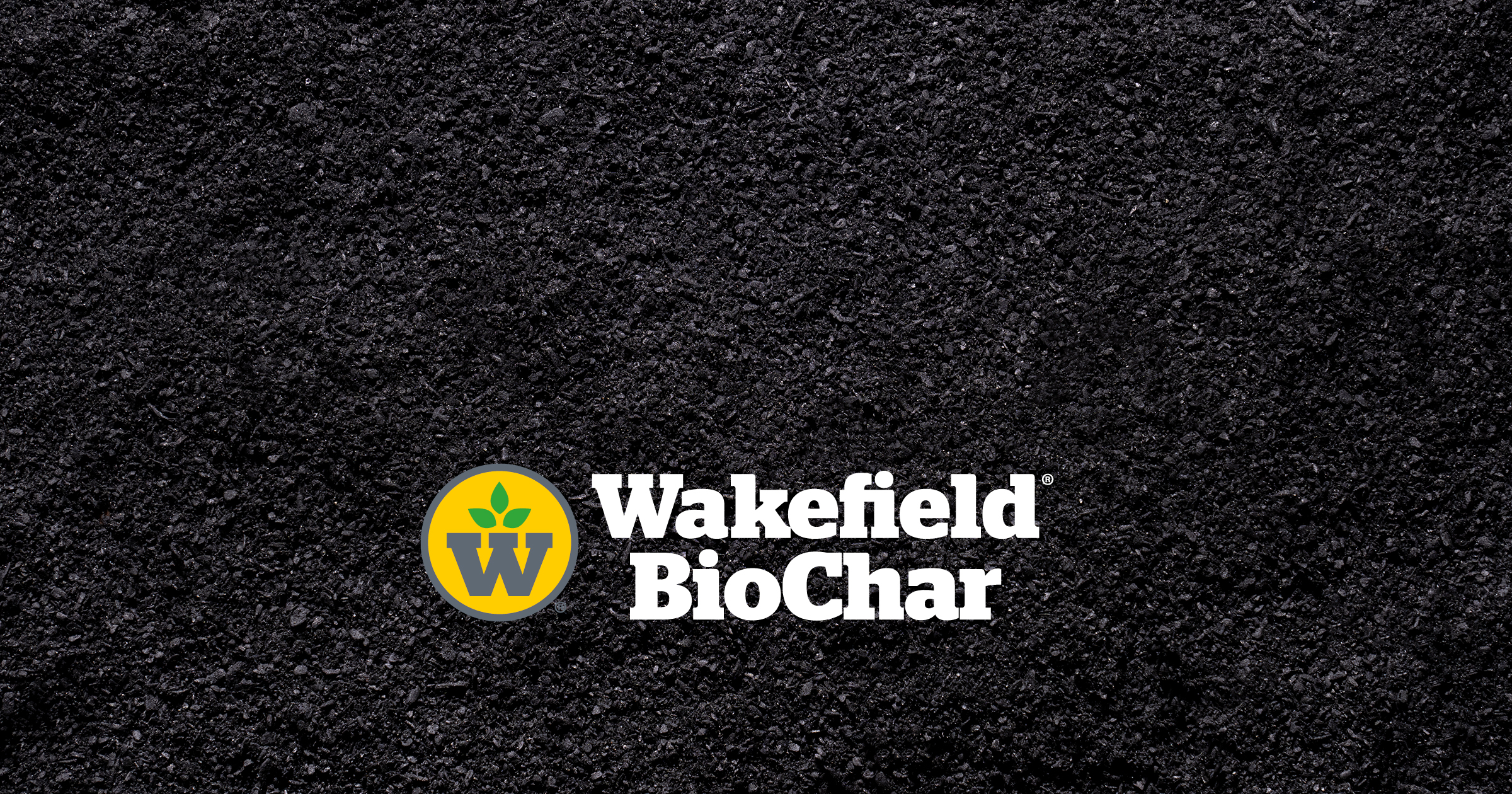Is Biochar Just Burnt Wood?

Spoiler alert: It’s not just burnt wood. It is also not the same as charcoal. Its surface area is far larger than charcoal and much more porous. This porosity allows biochar to retain soil nutrients and provide a habitat for favorable microbes.
Charcoal is suitable for cooking and heating. It is not appropriate for use in the soil as the ash and chemicals within it may prove hazardous.
While biochar can be used for fuel, biochar is primarily a soil conditioner, increasing soil fertility. Charcoal is not a soil conditioner, and if added to soil, it will have a detrimental effect.
Does Biochar Contain Wood?
At Wakefield BioChar, our premium biochar is made from virgin wood, not recycled timber. That makes our biochar consistent and free of contaminants. Our compost and biochar blend with mycorrhizal fungi improves the health of any soil with less work.
Our premium compost, made from untreated wood scraps, enriches soil while reducing disease.
What Is Biochar?
So, what is biochar? It is a natural soil conditioner that makes a huge difference in soil improvement. While biochar is suitable for any soil type, it is especially adept at restoring degraded and contaminated soils.
How Biochar is Made
Biochar is made by the heating of organic biomass–not necessarily wood–in a high-temperature, low-oxygen environment via a process known as pyrolysis. The high temperatures destroy any pathogens that may harm plants.
The lack of oxygen means that no harmful gases are emitted while the biomass burns. The entire process is carbon-negative.
Biochar Applications
There are all sorts of biochar applications. While biochar is best known for its ability to improve soil and boost plant fertility, it can also remove heavy metals and toxins from soil.
Biochar is also used for odor removal, ranging from the eradication of trash and food smells in the home to treating swine and dairy lagoon waste in large-scale livestock operations.
Use biochar on your lawn, garden, or farm to:
- Enhance soil structure
- Improve drainage and aeration
- Increase water-holding capacity
- Increase disease resistance in plants
- Encourage beneficial microbial activity
Biochar gives you healthier plants and a higher crop yield with less work!
Biochar and Sustainability
There are few rivals in the agricultural landscape when it comes to biochar and sustainability. Biochar meets the definition of sustainability criteria in the economic, social, and environmental sense.
Creating biochar by using organic waste that might otherwise end up in landfills is just one way of providing economic value. Biochar generates social value by improving the livelihood of farmers and rural communities. Biochar’s environmental value is wide-ranging, with its ability to sequester carbon perhaps the most crucial.
At Wakefield BioChar, our biochar is certified to come from responsibly managed forests that provide environmental, social, and economic benefits.
Biochar FAQs
Does biochar raise soil pH?
Soils with low pH are more acidic and not as hospitable to most plants. Adding biochar can raise soil pH levels. One caveat: There are certain plants that prefer acidic soils, such as azaleas, dogwoods, hollies, hydrangeas, and rhododendrons. Take plant preferences into account when considering soil pH levels.
How long does biochar last in the soil?
For all intents and purposes, biochar stays in the soil permanently. The biochar created by ancient civilizations in the Amazon Basin more than 2,000 years ago is still keeping poor jungle soils fertile.
How much carbon dioxide can biochar remove from the atmosphere?
One of biochar’s great advantages is that it sequesters carbon dioxide in the soil. This greenhouse gas is one of the primary causes of global warming, which leads to climate change. For every pound of biochar applied to soil, two pounds of carbon dioxide is sequestered and prevented from going into the atmosphere.
Learn More From Wakefield BioChar
At Wakefield BioChar, we are dedicated to improving soil and improving the planet. If you want your lawn, garden, and plantings to flourish, apply biochar. Keep in mind that you are doing more than boosting soil fertility. You are doing your part in keeping Earth healthier.





